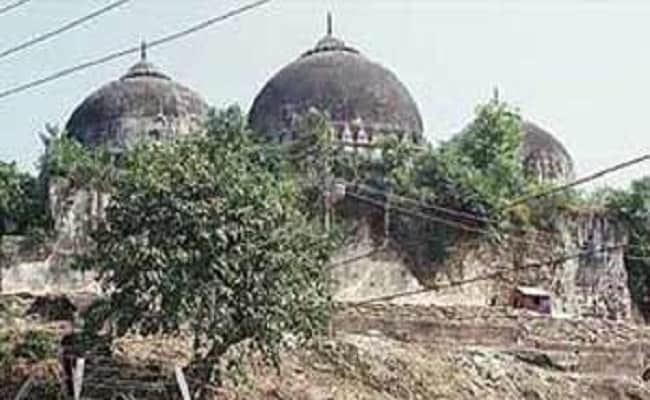
A three-judge bench of the Supreme Court will begin on February 8 next year, its final hearing over the disputed Ayodhya site that is claimed by both Hindus and Muslims, judges said on Tuesday, a day before the 25th anniversary of the demolition of the 16th-century Babri Masjid on December 6, 1992. There were heated arguments in court today as the Sunni Wakf Board sought that the hearing be deferred to after national elections are held in 2019. The court turned down the request, saying it was "shocked."
Here is your 10-point cheatsheet to the story:
At one point today, senior advocates Kapil Sibal, Dushyant Dave and Rajiv Dhawan, representing different Muslim petitioners who wanted the case deferred, threatened to walk out of court, alleging that they were "not being given a fair chance."
Kapil Sibal, senior Congress leader and former union minister who is representing the Sunni board, argued that the hearing must be deferred as building a Ram temple at the disputed site is a part of the ruling BJP's manifesto. "BJP leader Dr Subramanian Swamy had gone on record saying that Ram temple would be built before 2019 through legal means. They want to make it as an election manifesto and the court should not fall into the trap. These appeals are not ordinary property disputes as they go to the heart of secular fabric of the country," Mr Sibal said. He also said he needs time as there are 90,000 pages of documents to go through.
Senior lawyers Harish Salve and CS Vaidyanathan, who are representing Hindu organisations, objected, saying the court must treat the Ayodhya case like any other. "Appeal pending since 2010. Now they are saying court is hearing it in a hurry. It is unfortunate," Mr Salve said.
"We are shocked and surprised," said Chief Justice of India Dipak Misra, adding that the judges were "not bothered about what's happening outside." He pointed out that in August this year "all of you wanted the hearing in January and we posted today to hear the statement of facts. Now you want it to be postponed."
Thousands of right-wing activists had razed the Babri mosque in Ayodhya on December 6, 1992, claiming it was built on a temple marking the birthplace of Lord Ram, which was destroyed in the 16th century. 2,000 people were killed in the riots that followed the Babri Masjid demolition.
In 2010, the Lucknow bench of the Allahabad High Court said the site should be shared between Hindus and Muslims. The verdict allotted two-thirds of the land to Hindus and said they could keep a makeshift temple that was built over the razed mosque's central dome.
Both Hindu and Muslim organisations involved in the dispute rejected the order and appealed against it to the Supreme Court, which, in March this year, suggested an out-of-court settlement as the preferred solution.
Muslims make up about 13 per cent of India's population. Most of them are Sunni; properties owned by the community are handled by the Sunni Waqf Board which was given a third of the land in the 2010 verdict.
The Shia Waqf Board, on the other hand, has proposed that the temple be built at the disputed site, while a "grand mosque" be built in state capital Lucknow. "If the Ram temple and mosque co-exist, it will lead to conflicts," the Shia body said, provoking fierce criticism from its Sunni counterpart, which says it alone is a party to the dispute with Hindu organisations.
Its campaign for a Ram temple in Ayodhya propelled the BJP into a major political force in the 1990s, but in the last few years, the party relegated it to the back pages of its election manifestos even in Uttar Pradesh. Chief Minister Yogi Adityanath, a saffron-clad priest who took charge after the BJP's sweep in assembly elections this year, has asserted that building a Ram temple is a key agenda.

